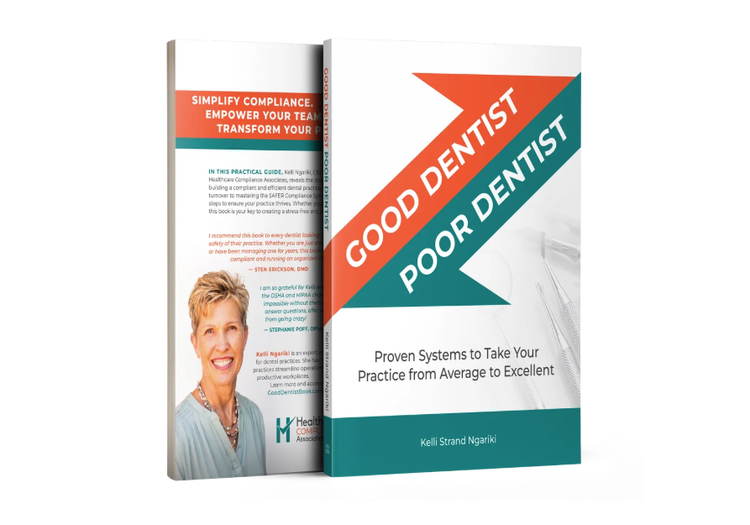'Oral health affects the entire body'

A version of this Q&A first appeared in the Dental Bite Newsletter. Sign up to here to receive the weekly newsletter.
By Brent LeBlanc | for Dental Bite
As more patients question what goes into their bodies, dentists are facing new kinds of conversations—about materials, systemic health and personalized care. Few are better positioned to speak to this shift than Dr. Nellie Sutherland, DDS, of Choices in Dentistry in downtown Chicago.
Since joining the integrative practice in 2019, led by Dr. Patty Gilleran, DDS, Dr. Sutherland has embraced a holistic model that blends traditional techniques with a whole-body mindset. “We are always considering how oral health affects the entire body,” she says. In this interview, she breaks down persistent misconceptions, explains the clinical value of salivary and biocompatibility testing, and shares how collaboration and open-mindedness are reshaping care.
What does it mean to be a holistic dentist, and how does your approach differ from traditional dentistry?
Holistic or integrative dentists look at patients as a whole, instead of their individual parts. This means looking at the root causes of issues and emphasizing prevention by treating issues at the source, rather than being reactive and treating issues when they are already causing problems. We are always considering how oral health affects the entire body or what we call the oral-systemic connection. We also try to use materials that are the most biocompatible when possible, and we always recommend safe, non-toxic, natural products to our patients to use at home.
How does a holistic approach benefit the patient experience, both in the chair and beyond?The biggest benefit of seeing a holistic dentist is it provides care that is not only more personalized, but also the least invasive. In particular, patients who are dealing with chronic health issues find a holistic approach to be more supportive for their overall health. Our favorite thing about working with holistic patients is the collaboration in making the best decisions for their long-term health and success.
In what ways do you take a patient’s overall health into account when creating a treatment plan?
Our first step is always to get to know as much background about the patient as possible. This includes a detailed medical and dental history, as well as collecting any previous X-rays we can get. We also sometimes recommend biocompatibility testing for patients who are very sensitive to materials or have allergies. This allows us to use dental materials that best suit the patient and help avoid toxicity. Salivary testing also allows us to tailor recommendations for specific dental products and helps guide us to make a home care routine that works best for that individual patient. Last but not least, we always discuss diet and nutrition, and we recommend our patients to stay current on their lab work with their primary care provider to see if there are any nutrient deficiencies we need to address.
Where do you see holistic dentistry fitting into more traditional dental practices—is there overlap or opportunity for integration?
I think not only dentistry but healthcare in general is trending towards a more holistic approach. I think over time we will see traditional offices starting to stray away from toxic materials like amalgam fillings that contain mercury and move more towards biocompatible options. At our office, we still utilize many traditional aspects of dentistry, so it’s not that we avoid traditional methods altogether, but we always consider what is the best treatment for the individual patient as a whole and utilize both holistic and traditional methods and materials.What are some common misconceptions you hear about holistic dentistry from other providers?Probably the biggest misconception is the belief that holistic dentistry is not rooted in science, but this couldn’t be further from the truth. Although we may use alternative treatments, everything we do and recommend is evidence-based. From ozone therapy to salivary testing, everything has roots in science, and we do it because we can see for ourselves that it works.
Are there specific tools, technologies, testing or protocols you rely on that reflect your holistic philosophy in practice?We are big believers in salivary testing. It’s a tool that has been around a long time but has constantly changed over the years. It wasn’t until recently that we have been able to see with great detail not only which types of bacteria patients have in their mouths, but even the specific amount of each strain. This helps us tailor treatment and home care recommendations to the patient as an individual instead of just prescribing the same things to every patient, whether they need it or not. We also do a lot of ozone therapy at our office for various things like bleeding and inflamed gums, and for cleaning extraction sites. Ozone allows us to kill the specific strains of bacteria while avoiding antibiotics, which tend to be overprescribed and can wreak havoc on the gut.
For dentists curious about incorporating holistic principles, what are a few simple changes they could consider making?
I think the first thing to change is to be open-minded about holistic philosophies and listen to the concerns of holistic patients rather than dismiss them. Most holistic patients are simply trying to make informed decisions regarding their personal health, and it’s our job as healthcare providers to help guide them. In practice, I think starting with something easy like salivary testing (we really like Bristle Health) gives dentists an opportunity to start giving more tailored treatment to their patients. I hope that will help them see that not every patient has the same needs, and telling every patient to just “brush and floss more” isn’t addressing their needs.
Don't be a stranger.
💠 Reply to this email to connect with our team.
💠 Forward Dental Bite to your colleagues.



